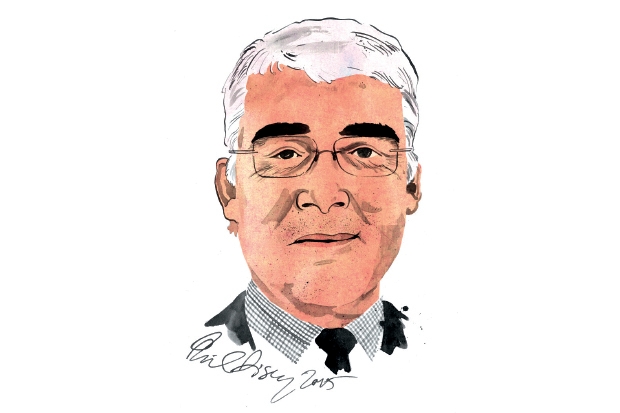It was mid-October and Downing Street was in a panic. Lord Freud, the welfare minister, had been secretly recorded suggesting that disabled people could be paid less than the minimum wage.
Labour demanded Freud should go. The No. 10 press office was briefing journalists that he would be out within hours. Craig Oliver, excitable Downing Street director of communications, advised the Prime Minister that Freud was finished.
There was talk of the return of the nasty party, and days of dreadful headlines. In the end David Cameron stayed loyal. Within 48 hours the story was forgotten.
Welfare reform is the coalition’s most important achievement. Universal Credit is at the heart of welfare reform. David Freud drove through universal credit when many others wanted him to give up, and the technical problems looked insoluble. His title is junior — parliamentary under secretary of state for work and pensions. In truth he has done work which outranks almost all cabinet ministers in importance. David Freud has left an imprint on Britain that will be felt half a century from now.
Britain’s shallow media/political culture, dominated by the trivial and the short term, is incapable of appreciating let alone understanding this. David Freud’s quiet determination, long-term vision, gentle humour and exquisite mastery of detail have remained a national secret.
He is a master of his brief. He is one of a handful of Conservative ministers outside the cabinet who have stayed in the same job for the last five years. Lord Freud is not a party politician. He has worked with Labour as well as the Conservatives, yet Iain Duncan Smith’s welfare reforms would have been impossible without him.
Great-grandson of Sigmund Freud, David joined the Financial Times after Oxford university, ending up writing the Lex column.








Comments
Join the debate for just £1 a month
Be part of the conversation with other Spectator readers by getting your first three months for £3.
UNLOCK ACCESS Just £1 a monthAlready a subscriber? Log in